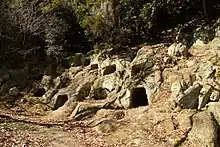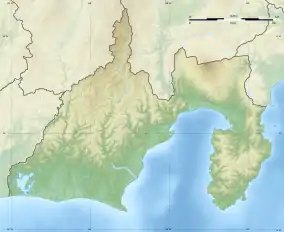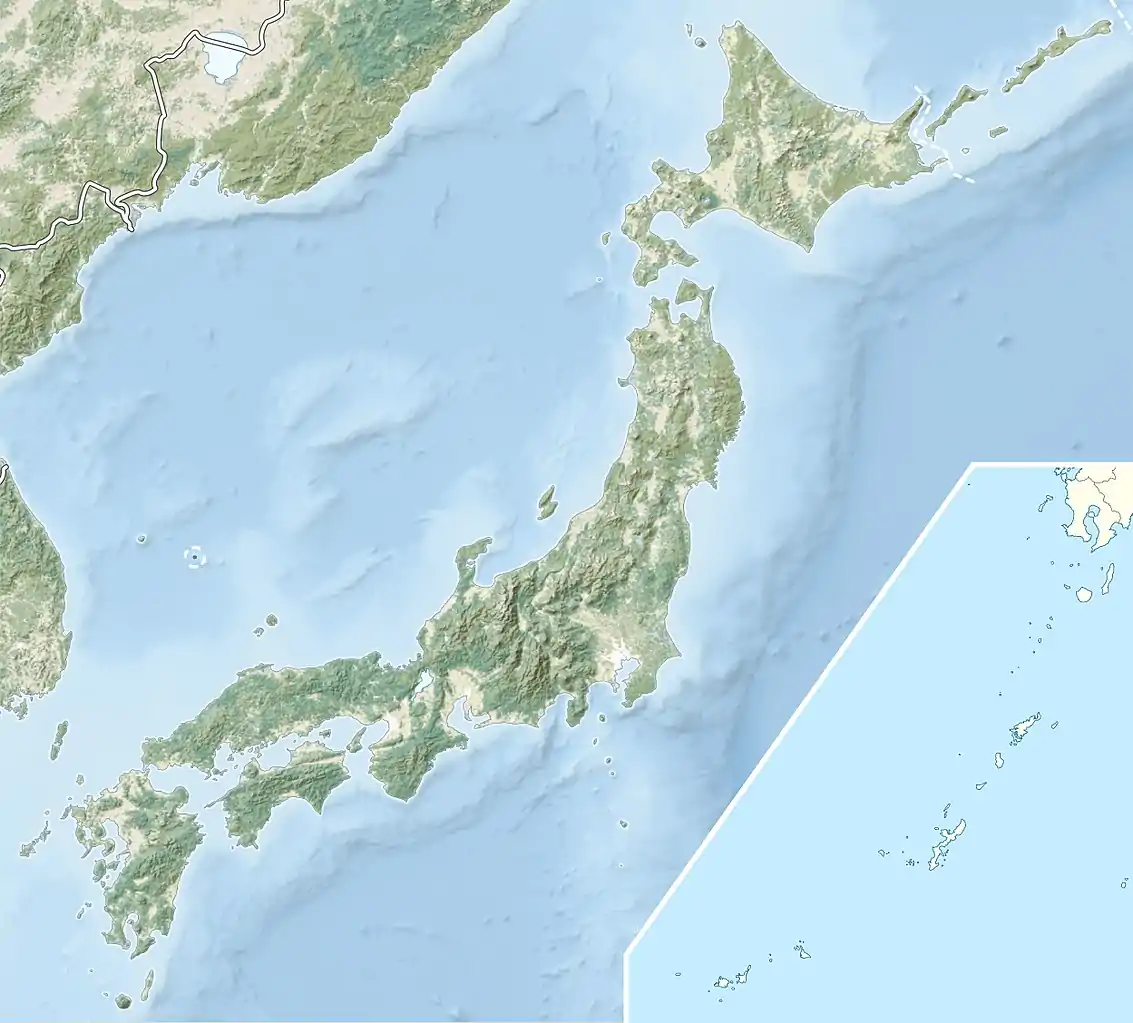Kitaema Cave Tombs
Kitaema Cave Tombs (北江間横穴群, Kitaema Yokoana-kofun gun) is an archaeological site containing the ruins of a final Kofun period to early Nara period necropolis in what is now part of the city of Izunokuni, Shizuoka, in the Tōkai region of Japan. The site was designated a National Historic Site of Japan in 1976.[1]
北江間横穴群 | |
 Kitaema Yokoana-kofun | |
 Kitaema Yokoana-kofun  Kitaema Cave Tombs (Japan) | |
| Location | Izunokuni, Shizuoka, Japan |
|---|---|
| Region | Tōkai region |
| Coordinates | 35°03′17″N 138°55′13″E |
| Type | grave |
| History | |
| Periods | Kofun period |
| Site notes | |
| Ownership | National Historic Site |
Overview
The site is north of the city center of Izunokuni on the banks of the Kano River. The site consists of ten yokoana kofun horizontal cave tombs with burial chambers excavated into the side of a tuff hill to the west and a second group of more than 40 graves to the east, and includes stone sarcophagus made from hollowed-out stone. The largest of these cave tombs extends 6.5 meters (21 ft) into the hillside, but the average is one to three meters (3 to 10 ft), with a height of approximately one meter (3 ft). The graves indicate a period of transition between burial and cremation.
One grave contained a 1200-year-old stone coffin shaped like a house and inscribed "Wakato-nari", which was presumably the name of the person associated with the tomb. This coffin was designated a National Important Cultural Asset in 1993. The National Historic Site designation was expanded due to additional finds in 1985.
The site is approximately 15 minutes by foot from Izu Hakone Railway's Izu-Nagaoka Station.
References
- "北江間横穴群" (in Japanese). Agency for Cultural Affairs.
External links
![]() Media related to Kitaema ancient graves at Wikimedia Commons
Media related to Kitaema ancient graves at Wikimedia Commons
- Izu Geopark official site (in Japanese)
- Izunokuni tourist information page (in Japanese)